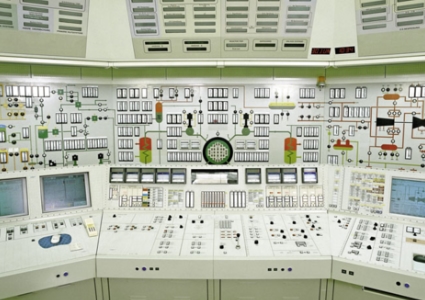Polling

Suggest an important issue not listed in this sub-category (). (Maximum 60 Characters)
Nuclear energy plants

Nuclear power plants provide about 19% of our electricity. We now have 54 commercial nuclear power plants operating 92 reactors in 28 states. Since 2012, twenty-three reactors at 19 sites have been either shut down or are in various stages of decommissioning. Our largest facility is Arizona's Palo Verde power plant. It operates 3 pressure water reactors and consumes nearly 5 million pounds of uranium each year. Georgia’s Vogtle units 3 and 4 are the only U.S. nuclear units under construction, and the first new nuclear units built in the last three decades years due to concerns over safety and waste disposal. Vogtle 3 started up in March — the country's first since Tennessee's Watts Bar Unit 2 began operation in 2016. Vogtle's two new nuclear reactors were delayed six years and over budgeted by at least $16 billion. Vogtle has admitted that the sheer weight of the nuclear island building is causing it to sink into the red Georgia clay.
In 2020, the average age of our operational commercial nuclear reactors was nearly 40 years. New construction of these plants has been threatened by competition from now-abundant natural gas and renewable fuels. Nuclear power plant supporters say these facilities produce electricity that is cheaper and cleaner than fossil-fueled power plants. Critics claim nuclear-produced power is not more inexpensive if plant construction and decommissioning costs are considered. They also say the cost of quarantining and abandoning large tracks of land contaminated by radioactive fallout has not been factored into these costs. They warn there is no fail-safe way to store or dispose of waste materials which remain deadly for thousands of years. They also warn most of our aging nuclear reactors now need to be replaced or decommissioned since they become more dangerous as they grow old.
Pending Legislation: H.R.5115 - Increasing Nuclear Safety Protocols for Extended Canister Transfers Act or the INSPECT Act
Sponsor: Rep. Mike Levin (CA)
Status: House Subcommittee on Energy, Climate and Grid Security (Energy and Commerce)
Chair: Rep. Jeff Duncan (SC)
In 2020, the average age of our operational commercial nuclear reactors was nearly 40 years. New construction of these plants has been threatened by competition from now-abundant natural gas and renewable fuels. Nuclear power plant supporters say these facilities produce electricity that is cheaper and cleaner than fossil-fueled power plants. Critics claim nuclear-produced power is not more inexpensive if plant construction and decommissioning costs are considered. They also say the cost of quarantining and abandoning large tracks of land contaminated by radioactive fallout has not been factored into these costs. They warn there is no fail-safe way to store or dispose of waste materials which remain deadly for thousands of years. They also warn most of our aging nuclear reactors now need to be replaced or decommissioned since they become more dangerous as they grow old.
Pending Legislation: H.R.5115 - Increasing Nuclear Safety Protocols for Extended Canister Transfers Act or the INSPECT Act
Sponsor: Rep. Mike Levin (CA)
Status: House Subcommittee on Energy, Climate and Grid Security (Energy and Commerce)
Chair: Rep. Jeff Duncan (SC)
Poll Opening Date
December 23, 2024
Poll Closing Date
December 29, 2024
Democracy Rules respects the privacy of your information.
See PRIVACY STATEMENT
See PRIVACY STATEMENT